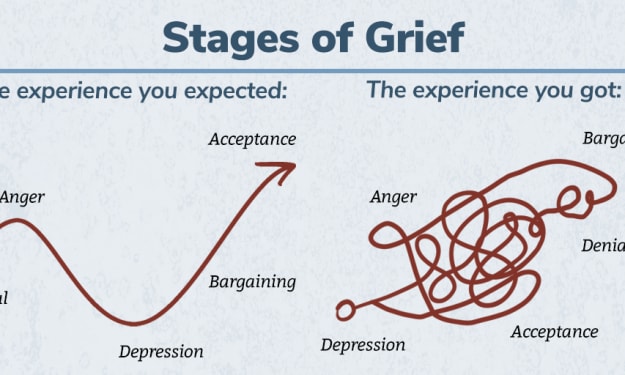Can Writing Daily Journal Entries Improve Your Writing Ability?
The truth about practice and repetition.

Can writing daily journal entries improve your writing ability?
A fascinating question, and one posed to me not long ago. Before I lent this young man my assistance, I wanted some clarification, and this was his response:
Been writing journals for years and years, and I go back to them all the time. It helps me to remember the past and I wonder if it will make me a better writer. If you read your own journals from 20 years ago, do you think it would help me be better? Should I do it every day?
The short of it is this: writing journal entries will help you to write better journal entries, especially if you read your old entries, and pit them against the newer ones, in an effort to improve your writing, but this only applies to more journal entries.
See, here’s the thing: practice makes permanent. Perfect practice makes perfect, but how does one perfect their practice of anything without seeking an outside influence?
This young man also stated that writing in his journal helped his memory, and I’m sure writing journal entries is a wonderful way to increase recollection, because you have to think about your day from the moment you wake up to the moment you’re about to go to sleep, but jotting down a series of events is not at all the same as creating a living world, a twisting story line, dialogue, problems, tensions, solutions, emotions, inspiration, and even suspense.
In the end, it depends on what kind of writer you want to be.
Writing in a journal is certainly a great practice for many reasons, and it will absolutely assist someone thinking about writing an autobiography, but writing in a journal won’t make you cognizant of proper punctuation application, correct grammar, or chilling dialogue.
Take for instance someone who grew up a lone child, on a farm, with no friends, and raised by a single parent. They probably won’t be natural conversationalists, will they? I mean, they might; one can never truly predict the abilities of our fellow men, but this particular individual will likely experience trouble writing captivating dialogue, natural dialogue. They may even have poor grammar skills, and people who have poor grammar skills don’t know they have poor grammar skills, so writing in their journal, they’ll just keep jotting down poor grammar.
On the other hand, if a writer pairs their journal writing with web research from Purdue Owl, and they apply what they learn from the site to their old entries, and then rewrite those entries, they can certainly practice the art of editing, thus improving their technical, writing ability, but without a thesaurus, they’ll never know that a better way to express tall, beautiful girl is statuesque.
If a writer doesn’t already know the word statuesque, they won’t put it in their daily journal. If it isn’t in their daily journal, and they don’t research how to improve their writing (vocabulary, grammar, punctuation, creativity), they’ll never add that word to their entries, so there are certainly benefits to writing journal entries, but it all boils down to you, individually, and what you wish to accomplish.
You will never understand showing versus telling, and when to use which concept if all you do is write in your journal; you write they way you think no matter how much you write. I’ve pointed out before that such a practice is fine for first drafts, but then what?
When I explained all this to the young man, he then clarified that he was thinking about writing a book, a fictional book based on some of his experiences. In his case, the journal entries were a catalyst, which helped him to create a protagonist with which he identified, but is anyone else going to identify with that protagonist? That’s the big question.
Writing—novel writing—is intended to give the audience someone, something, with which they identify. If no one identifies with the characters, the plot, the storytelling, no one will enjoy the book, virtually no one, anyway.
That may not matter to some people. Some people simply seek the accomplishment of writing an entire book, but even to them my advice is to practice writing short stories over journal entries. Then, I always advise they move on to writing fanfiction, so they can get a feel for creating an entire series of events, but events based on an existing world. It’s great practice, and it can really help them to build a fan base before releasing their debut novel.
Funny how Stephen King never talks about how writers should learn to build a fan base before they write; he never talks about the complexities of editing either, no…just don’t use for a long moment; that’ll make you a star!
My final analysis is that writing journal entries everyday is great, but not for writing a book that is not an autobiography. If you want to write an autobiography, just write everything you’ve ever seen, done, heard, experienced, and forget self editing, just hire an editor. In that case, each entry works as a scene, and the scenes can be pieced together in an orderly fashion until a chapter has been created.
Writing short stories and fanfiction novels is far and away a more pragmatic approach to improving your writing ability, but if you enjoy writing journal entries, don't you dare stop.
Thanks for reading. Please share my information with anyone who needs a little help with their writing endeavors. We should all help one another to succeed!
About the Creator
Aaron Dennis
Creator of the Lokians SciFi series, The Adventures of Larson and Garrett, The Dragon of Time series, and more.






Comments
There are no comments for this story
Be the first to respond and start the conversation.